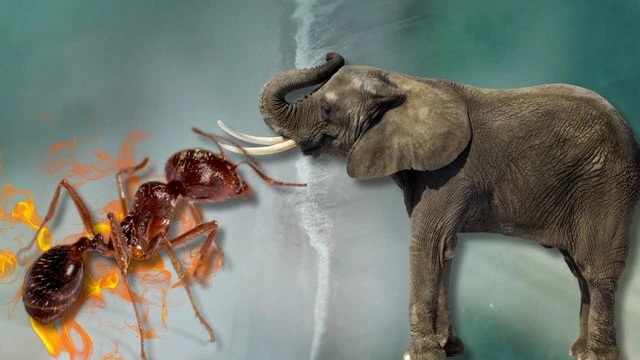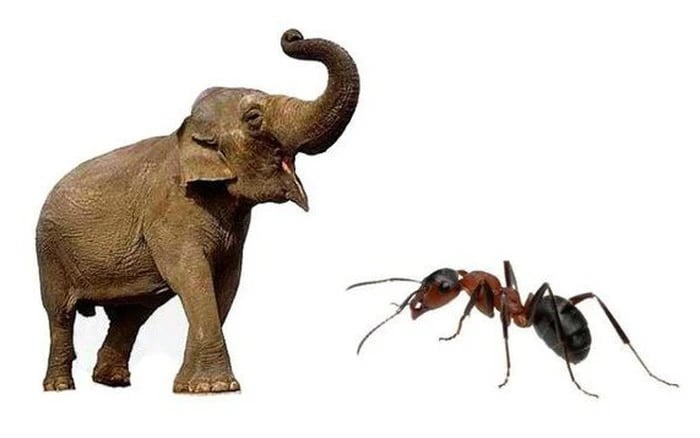The fable “Ant killing an elephant” aims to convey an important lesson about the power of unity and cunning. In reality, can a colony of ants kill an elephant?
Can ants kill an elephant?
Ants are a common insect species belonging to the Hymenoptera order. An adult ant can measure from 0.75 to 52mm in size. Except for the Antarctic, Iceland, Greenland, ants can be found nearly everywhere in the world.
Meanwhile, elephants are a mammal species belonging to the Elephantidae family and are currently the largest land mammal. There are 3 recognized species of elephants: Asian elephants, African forest elephants, and African savanna elephants. The length of an elephant can reach 4.6m. They are widely distributed across Sub-Saharan Africa, South Asia, Southeast Asia, and adapt to various habitats such as grasslands, forests, deserts, and swamps. Elephants are herbivores and congregate near water sources.

To draw a conclusion on whether an ant colony can kill an elephant, we need to make specific comparisons.
In terms of size, ants range from 0.75 to 52mm, while elephants are much larger, with lengths of up to 4.6m. Clearly, elephants have a significant advantage due to their size.
In terms of combat strategies, these two species differ. One species of ant called the Army Ant has the ability to apply military principles similar to humans in waging wars. They rely on ambush tactics and their large jaws that resemble tiny swords to launch surprise attacks on opponents. Additionally, these ants often use overwhelming numbers to overpower opponents with fewer numbers.

Elephants, on the other hand, do not have any specific combat techniques recorded.
In terms of defense capabilities, these two species also differ. While ants have excellent self-defense and mutual protection mechanisms, there is little information regarding the defense capabilities of elephants.
The battle between ants and elephants
In the African savanna, there is a tree species called Acacia whistle-thorn that elephants often come to destroy. Acacia whistle-thorn has partnered with small ants to act as “bodyguards.” Researchers Jacob Goheen and Todd Palmer from the Mpala Research Center in Kenya discovered that this tree species provides homes and nectar for ants, in return, ants help prevent other species from damaging the trees.
For elephants, ants cause discomfort by biting their thin skin layers in their trunks’ eyes. Therefore, elephants always stay away from Acacia whistle-thorn trees inhabited by ants.

Therefore, the likelihood of ants killing an elephant is very low. With their small size and limited strength, ants, even when united, cannot defeat a large elephant. They can only cause annoyance to elephants through their bites. Of course, this is only a theoretical analysis. In reality, ants and elephants have no reason to attack each other.







































